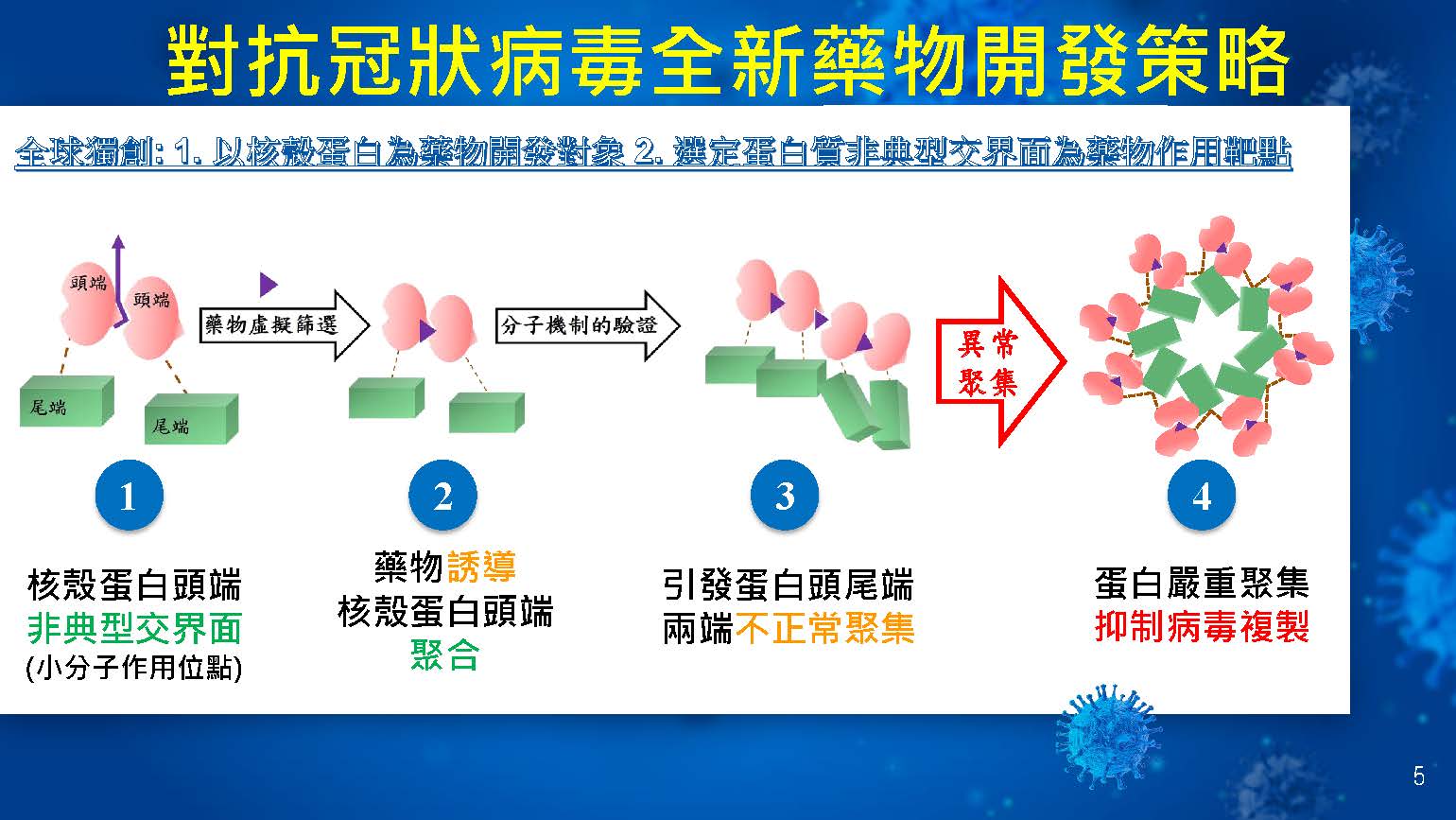
Development of broad-spectrum antiviral drug targeting nucleocapsid protein against coronavirus
2020-11-09
Development of broad-spectrum antiviral drug targeting nucleocapsid protein against coronavirus
Institute of Genomics and Bioinformatics, National Chung Hsing University
Small-molecule stabilization of protein-protein interactions (PPIs) is a promising strategy in drug discovery. However, this approach has mainly focused on the stabilization of native PPIs, and non-native PPIs have received little consideration. Recently, a closely related novel coronavirus, SARS-CoV-2, caused an outbreak of pneumonia in the world. Here, we used the non-native dimer interface of the N-terminal domain (NTD) of N protein as the target in virtual screening for an orthosteric stabilizer. The interface formed a conserved hydrophobic cavity suitable for targeted drug screening. We found that a small molecule, P3, had both antiviral activities against CoVs and stabilizing effects on the viral N protein. Our results showed that P3 induces abnormal full-length N protein oligomerization in vitro and at the cell level. We also found that this conservation site may provide certain advantages when developing compounds with broad-spectrum activity against most CoVs, including SARS-CoV-2. It has been found that this compound can relieve the clinical symptoms caused by a coronavirus in animal models. This unique approach based on the identification and stabilization of non-native PPIs of N protein could be applied toward drug discovery against CoV diseases.
Epidemic Prevention Advantage:
1. The new strategy targeting the N protein of coronavirus can diminish the side effects of drugs.
2. The compound acts on the highly conserved region of the nucleocapsid protein can be developed as a cross-species and broad-spectrum anti-coronavirus drug.
3. We provided a detailed molecular mechanism between the compound and protein for further lead optimization.
4. Our compound applies a novel strategy to accomplish its antiviral activity with a therapeutic index greater than 20, which could be used as an auxiliary treatment for CoV disease.
5. Compared with other existing drug candidates, such as Remdesivir and Favipiravir, it has shown lower toxicity and higher safety.
Collaboration Options:cooperative development
